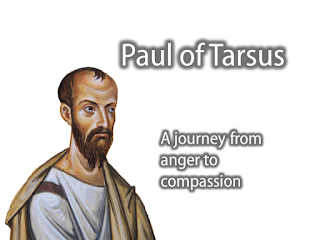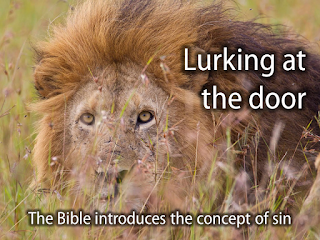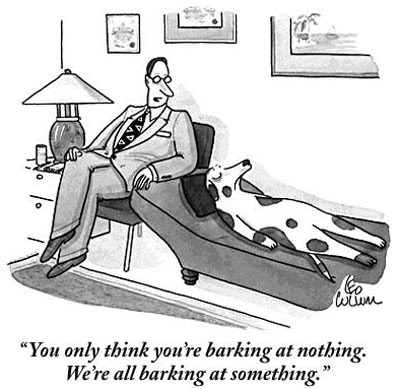Session Report Highlights 2016
The Kirk Session with 14 sitting Elders held 11 regular meetings during 2016. No special meetings were held.The Annual General Meeting was held in February. At the regularly scheduled meetings a wide variety of matters were discussed and resolved. Below is a recount of the highlights of these meetings:
January
The Hespeler Place of New hope Advisory committee – terms of reference were adopted as written [September 2015].
In January a group met to develop strategies that would underpin the budget process for 2016. This group (Rev. Scott McAndless, Rob Hodgson, Donald Paddock, Ray Godin, Bob Neath, Ron Paddock and Vern Platt) was assembled in a round-table discussion concerning 2016. Four major fundraising Session initiatives outlined and defined for 2016.
Session announced “We are holding a special study based on the document Body, Mind and Soul: Thinking together about human sexual orientation in the Presbyterian Church in Canada. We are holding this study to help us to understand the issues in order to feedback to the General Assembly as they try to formulate a path forward for the PCC.”
Once again Session considered parking at worship this time due to the changes by the City of Cambridge initiated on Queen Street Hespeler. The parking spots immediately in front of the church on Queen St. have been posted “no parking” while traditionally “Sunday only” was allowed.
Session approved a portion of the Saint Andrews Endowed fund be actively managed by the Cambridge & North Dumfries Community Foundation.
February
Session approved the 2016 budget of $234,512 as presented. This constitutes the document to be forwarded to both the pre-AGM financial meeting and at the Annual General Meeting for budget review.
Planning for the Rev. Jeff Veenstra memorial Walk-a-Thon planned for October 16, 2016 at Crieff Hills was announced.
Session created the “160 Group” to plan and implement the 160th Anniversary of St. Andrews Hespeler. This group in cooperation with the Mission & Outreach Committee are tasked to develop a creative, inviting and inclusive atmosphere for the July Hespeler Reunion festivities and the October Celebration of our 160th year.
March
Elder/Deacon elections for 2016 are announced and approved. Elders serve on Session for a period of six years upon being elected unless they withdraw for other reasons. Elders may opt to be re-elected if they wish.
The Annual General Meeting passed a resolution to eliminate the recurring debt entries as seen for the last few years. The AGM resolution clearly stated that in 2016-2017 Session would research and develop a strategy to eliminate the debt and establish sustainable long-term funding. Session developed strategies throughout the year to meet these expectations.
Session authorized the insertion in the Bulletin on how the budget cuts impact: administration, the office, office hours and staffing. TBA weekly office hours and advisory the office will be closed Fridays (appointments only).
April
St. Andrews authorizes an independent contractor to do bookkeeping and financial services replacing the Administrative Assistant (vacant).This would be set up on a pilot or trial basis and would involve the contract period of April 11 through to July 15, 2016. That Human Resources Committee commences a recruitment process to fill the part- time position of Administrative Assistant with 9 scheduled hours of work weekly.
Session discussed: Amazing Shrinking Tea Party, a re-invention of the meat pie sales, the Christmas Dream Auction and we will creatively research fundraising in 2016 - 2017.
May
Session approved that the Stewardship Committee development of sustainable finances for 2016 and beyond. Inclusive of:
· compiling detailed projections of all expenses and expense timelines
· providing guidance on unfunded projects/liabilities and accumulated debt
· provide guidance on 2016-2017 revenue and expenses
· develop a process to create sustainable financial governance beyond 2017.
In association with the Operations Committee, Session formalized a cheque writing authority on behalf of St. Andrews Hespeler. This document outlines the procedures to be used to issue cheques and who may authorize a draft.
June
Session reviewed the status of the election of Elder/Deacons 2016. 4 Elders were to be elected – one new Elder (Randy Rattansingh) and two re-elected Elders were confirmed. One Deacon was found and confirmed. Kim De Boer has graciously joined the Deacons ranks in 2016.
The Clerk of Session briefed Elders on a working document called Revision of the Communion Serving Model. Congregational numbers have reduced the need for a large number of servers at communion.
Session reviewed the replacement of the Youth Group Co-coordinator (May 2016) upon the resignation of the current staff member. Session accepted a proposal from Joni Smith on to serve as an interim replacement up to June 2017.
Session approved the replacement of the addition roof by Thompson Roofing Inc. in the amount of $19,549.00 including HST to be completed as soon as feasible.
In realization of the AGM referendum to balance the budget and achieve sustainable financing, the Stewardship Committee delivered the following plan to meet goals.
· That remaining funds from Share the Warmth, the Capital Endowment Fund and any giving doors opened in response to the need to re-roof be used to replace the “new” addition roof in 2016
· We fundraise specifically for the Organ repair (“Buy a key” campaign)
· Invent a loose change ongoing Ministry
· We keep the Video projection system on a “warm pause”.
· We fund any shortfall in our commitment to Hope Clothing not raised by donations as follows (70% from the Mission Fund and 30% from the Memorial Fund).
· With respect to the loan from Presbytery, we recommend repaying it over the remaining term ($2,500 per year over next 8 years). No use of the balance is currently scheduled. Backup funding for extreme emergency use only.
· The schedule of Session approved fundraising be enhanced and promoted to achieve our goal.
Upcoming event: the Race to Eliminate Poverty a challenge to pit teams against each other in association with Hope Clothing and the Food Bank.
September
The Sustainability Task Team has been asked to; ascertain why attendance is falling, and reconstitute the task force to re-examine the funding new information received.
Updates for September: Loose change Ministry is currently underway, Meat pie sale - in recognition of traditional fundraising well underway and Christmas Dream Wish Auction will also be returning to St. Andrews.
Christian Education will be reviving the pop can drive for the fall – funds raised will be donated to the Jeff-a-thon. In recognition of this, a trailer will be parked in the upper lot on October 2, 2016 part of the challenge to fill it!
October
The fall joint Deacon/Elder Meeting was convened with: a general meeting to start, fellowship and team building activities for Elders and Deacons ending in each group separating to meet.
The Stewardship Report was discussed at length on some changes in financing that need to be enabled currently. Due to confidentiality requirements, these changes will be revealed at a later date.
Mathew Brown has communicated that he wants to go the Knox College in preparation to become a Minister. The process starts at Session with recommendations forwarded to the Presbytery for intake. More information will be announced soon.
November
On Wednesday, December 14th we will be having a “Youth Ministries Potluck Dinner” for families with children Grade 7+. This dinner will be organized in a way similar to a LOGOS dinner; with a time of team/group building, food & fun. After eating we will brainstorm ideas and needs so that we can begin the process of rebuilding a Youth Ministry.
Session is recommending the congregation read “Reformed Worship.” “Beyond the Worship Wars; Building Vital and Faithful Worship” by Thomas G. Long. In the past, Session has had book studies and hope to open the door for the entire congregation to participate. Session is exploring how we can get books.
December
Christian Education will create a “Little Library” outside the church in a place to be approved soon. A little library is a lending are where books can be borrowed or donated to others. It is more or less an outdoor cupboard to encourage book lending. It will be monitored carefully to ensure that appropriate books are traded and available.
GOOD NEWS 2016
The Jeff-a-thon raised $30,000 for PWS&D and when matched 3 to 1 by the federal government this means a whopping $120,000 donated. Awesome. In the spirit of giving, St Andrews Hespeler won the competition for most dollars raised and a free luncheon in December.
The Stewardship Committee announced some very good news on the sustainable financing results. The meat pie sale and Christmas Dream Wish Auction have raised more than $8,000 in two events. More news is to follow on a significant change to this goal hopefully in the New Year. Certainly in time for the AGM.
The Mission and Outreach Committee move towards a Mission Trip in 2017 and had a full schedule in 2016. Ably led by co-chairs Pete Moyer and Elaine McLean ensure a visible footprint of St. Andrews in all Hespeler events. Most notable this year - The Great Hespeler Reunion.
St. Andrews has confirmed funding of Hope Clothing for 2017. From conception to established program only a little than 3 years has transpired. Jane Neath laid a firm footing with a business plan and financial framework in 2012-2013. And with that leverage New Hope Clothing is off to a running start. The other instrumental force has been Karen Kincaid. Her day-to-day-operations, bootstrapping the launch of New Hope have created a social network with her enthusiasm. Thursdays will never be the same! Of note in 2016 a simple announcement on the internet for help with Syrian Refuges brought over 3,000 visits and dozens of calls to donate to New Hope.
In 2016 Session discussed and researched the movement of the piano and the pulpit a number of times. Session did approve the moves and has heard that some members are troubled by this decision. In recognition of this discomfort, a process to define what the arrangements on the dais need to be made to serve the congregation better have been started. In the near future, Session will be asking for recommendations, consolidating the results and presenting the plans before further changes are made. Your participation in this process is greatly encouraged. Session thanks you for your input on this.
In the New Year, Session will invite Corey Cotter Linforth, Music Director to share the philosophy and workings of “Blended Worship Music” with Session. Session hopes to open up the understanding to the congregation on how blended worship music works. More information will be made available in 2017 on this.
The Clerk of Session has offered his resignation effective December 31, 2016. In respect to Session, I have confirmed I will stay COS until March 31, 2017 in an effort to select a replacement Clerk. I would like to thank the congregation, staff and Elders for the seven wonderful years I have spent.
The highlights provided are assembled chronologically to help communicate Sessions’ discussions to the congregation. In the course of the year many other topics were discussed, some of the minor significance and others of major importance. In this synopsis, you see the core of what happened excluding those issues that are confidential and must be protected and those too insignificant to include. If you have any questions I would be happy to respond.










